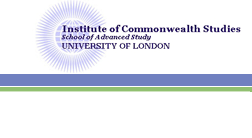|
|
NUPUR BASU
-
Nupur Basu is an experienced print and television
reporter and award winning documentary film maker. She took
her MA at Delhi University in 1981, and was then for eight years
correspondent for the Indian Express in Bangalore. She has been
a television current affairs reporter since 1990, first as a
freelance working among other programmes for ITV's India View,
Times Television's business programme, Doordarshan's Parakh
and Ananda Bazaar Patrika's Business Breakfast. In 1994-95 she
was freelance reporter for NDTV's current affairs programme
The World This Week, and for the New York-based weekly Asian
newspaper India Abroad. From 1995 she was Special Correspondent
for New Delhi Television (NDTV), based in Bangalore. She currently
works for NDTV- 24 x 7. She regularly lectures on media subjects.
-
Her documentary films include Dry Days In
Dobbagunta, (1995), a documentary about the rural women's movement
against alcohol in Southern India in the Indian states of Andhra
Pradesh and Karnataka. The film, produced by Television Trust
for Environment (TVE), UK, was premiered at the Beijing women's
conference in 1995 and telecast on BBC World as part of special
series of films made by women directors across the world. Dry
Days in Dobbagunta won the Award for Excellence in Television
at the IAWRT Festival at Harare, Zimbabwe in April 1997.
-
In 1996, she directed Mothers Of Mallapuram,
a short film on population and development. The film, produced
by TVE, was shown on BBC World as part of a series entitled
Not The Numbers Game. The series got the Judges commendation
at the One World Awards in UK for Best Overseas Production in
1997.
-
Lost Generations (2000), is a 23-minute
documentary film produced by TVE about the impact of globalization
on child and maternal health for the series LIFE telecast on
BBC World.
-
In 1998 Nupur Basu was commissioned by the
Media South Asia Project to direct Michael Jackson Comes To
Manikganj, a 57-minute documentary that was made over three
years from 1998 to 2000. It was filmed in different regions
of South Asia, from Peshawar in the North West Frontier Province
in Pakistan to Kandy in Sri Lanka and in remote villages of
Bangladesh and Nepal, and different regions in India. The film
analyses the impact of satellite television on the lives, culture
and politics of the people during the 1990s. The film was launched
in Delhi in December 2000 and since then has been screened in
Mumbai, Karachi, Dhaka, Kolkata, Colombo, London, Oxford, Toronto
and Bangalore.
-
|
|
|












